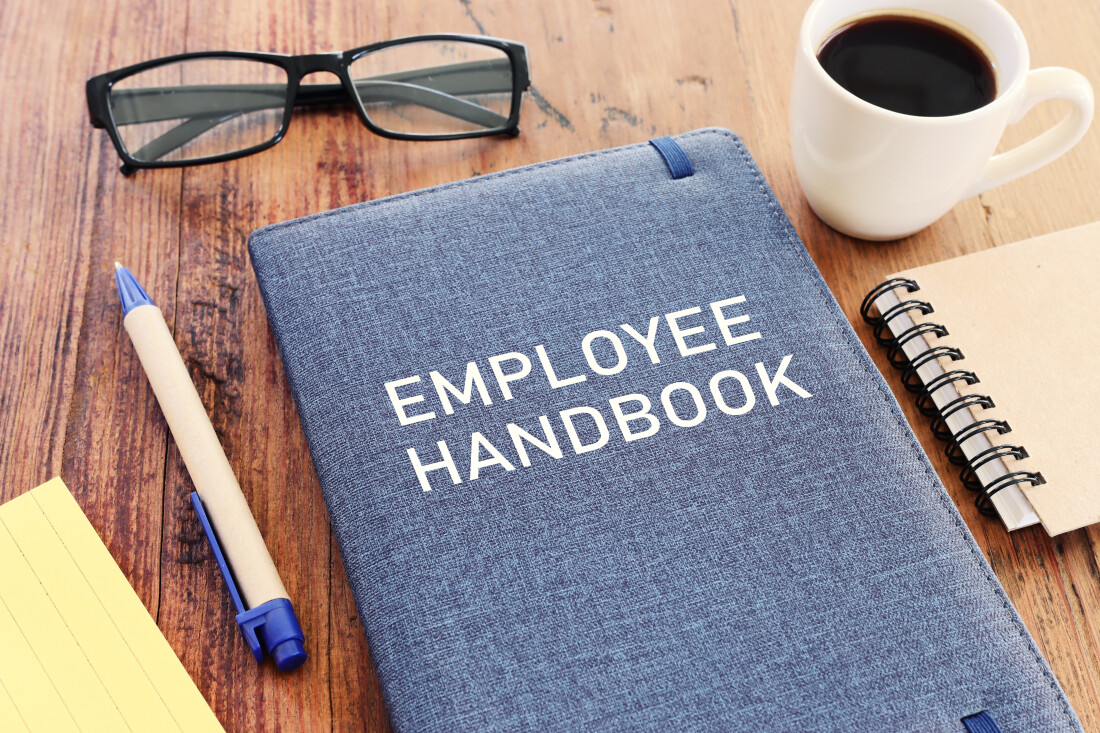Contact Us
Categories
- FTC
- Emotional Support Animals
- Service Animals
- Employee Agreement
- Remote Work
- Federal Trade Commission
- LGBTQ
- Minors
- United States Department of Justice ("DOJ")
- Work from Home
- Arbitration
- Workplace health
- Intellectual Property
- Trade Secrets
- Corporate
- Center for Disease Control
- Americans with Disabilities Act ("ADA")
- FFCRA
- Opioid Epidemic
- Occupational Safety and Health Administration (“OSHA”)
- COVID-19
- Families First Coronavirus Response Act
- H.R.6201
- Health Care Law
- IRS
- Paid Sick Leave
- Temporary Leave
- Treasury
- Coronavirus
- Worker Misclassification
- Labor Law
- Overtime
- Kentucky Unemployment Insurance Commission
- Sexual Harassment
- FMLA Retaliation
- Overtime Rule
- Employer Wellness Programs
- Genetic Information Nondiscrimination Act ("GINA")
- Kentucky minimum wage
- Minimum wage
- Paid Time Off ("PTO")
- Sick Employees
- Wage and Hour
- Employee Benefits
- Employment Discrimination Laws
- Employment Non-Discrimination Act ("ENDA")
- ERISA
- Human Resource Department
- Independent Contractors
- Kentucky Civil Rights Act (“KCRA”)
- OSHA
- Overtime Pay
- ADA Amendments Act of 2008 (“ADAAA”)
- Adverse Employment Action
- Americans with Disabilities Act
- Bring Your Own Device
- BYOD
- Civil Rights
- Compliance
- Department of Labor ("DOL")
- EEOC
- Employee Handbook
- Employee Misconduct
- Employment Law
- Fair Labor Standards Act (FLSA)
- Family and Medical Leave Act (“FMLA”)
- National Labor Relations Act (NLRA)
- National Labor Relations Board (NLRB)
- Pregnancy Discrimination Act
- Social Media
- Social Media Policies
- Title VII of the 1964 Civil Rights Act
- U.S. Department of Labor
- U.S. Equal Employment Opportunity Commission (“EEOC”)
- Uncategorized
- Union
- Volunteer
- Young v. UPS
- Amazon
- Department of Health and Human Services
- Federal contractors
- Kentucky Labor Cabinet’s Occupational Safety and Health Program (KOSH)
- Micro-unit
- Portal-to-Portal Act of 1947
- Security Checks
- Security Screening
- Specialty Healthcare & Rehabilitation Center of Mobile
- U.S. Supreme Court
- Cloud
- Creech v. Brown
- EEOC v. Hill Country Farms
- Equal Employment Opportunity Commission v. Kaplan Higher Education Corp.
- Lane v. Franks
- Mine Safety and Health Administration ("MSHA")
- Non-exempt employees
- Northwestern
- Shazor v. Prof’l Transit Mgmt.
- Web Content Accessibility Guidelines
- Whistleblower
- "Ban-the-box"
- 2013)
- At-will employment
- Berrier v. Bizer
- Bullying
- Chapter 11 Bankruptcy
- Chenzira v. Cincinnati Children’s Hospital Medical Center
- Citizens United v. Federal Election Commission
- Companionship services
- Compensatory time off
- Conestoga Woods Specialties v. Sebelius
- Consumer Credit Protection Act (“CCPA”)
- Crystalline Silica
- Davis-Bacon and Related Acts
- Drug-Free Workplaces
- Earnings
- EEOC v. Fabricut
- EEOC v. The Founders Pavilion
- Ehling v. Monmouth-Ocean Hospital Service Corp.
- Federal Stored Communications Act (“SCA”)
- Giant Food LLC
- Government employees
- Government shutdown
- Home Health Care Workers
- Illness and Injury Reports
- Job applications
- Jury duty
- Kentucky Department of Workers’ Claims
- Kentucky Wage and Hour Act
- KYSHRM 2013
- Mandatory vaccination policies
- Maternity Leave
- McNamara O’Hara Service Contract Act
- Medical Exams
- NFL Bullying Scandal
- Payroll
- Permissible Exposure Level ("PEL")
- Private employers
- Sebelius v. Hobby Lobby Stores
- Senate Bill 157
- SHRM
- Small Business Administration (SBA)
- Violence
- Wage garnishment
- WorkSmart Kentucky
- COBRA
- Contraceptive Mandate
- Defamation
- Defense of Marriage Act (“DOMA”)
- Employee Forms
- Employee Hazards
- Employee of the Month Programs
- Employee photographs
- Employee Training
- Employer Group Health Plans
- Employer Mandate
- Employment Practices Liability Insurance
- Endorsements
- Federal Workplace Agencies
- FICA
- Form I-9
- Freedom of Speech
- Gatto v. United Airlines and allied Aviation Services
- Health-Contingent Wellness Programs
- HIPAA
- House Labor and Industry Committee
- KRS 391.170
- Litigation
- Madry v. Gibraltar National Corporation
- Megivern v. Glacier Hills Incorporated
- Motivating Factor
- Obesity
- Online Account Protection
- Online Defamation
- Participatory Wellness Programs
- Patient Protection and Affordable Care Act
- Pennington v. Wagner’s Pharmacy
- Pension Plans
- Play or Pay
- Posting Requirements
- Record Retention
- Reference checks
- Religious Employer
- Right to Work Bill
- Sequester
- Severance Pay
- Social Media Ownership
- Supervisor
- Supplemental Unemployment Compensation Benefits
- Tangible employment actions
- Tax Refund
- Telecommuting
- Title VII retaliation cases
- Troyer v. T.John.E Productions
- U.S. Citizenship and Immigration Services
- Unfair Labor Practice
- United States v. Quality Stores
- United States v. Windsor
- University of Texas Southwestern Medical Center v. Nassar
- Vance v. Ball State University
- Crisis Management
- Employee Arrests
- Job Description
- Job Requirement
- Kentucky’s Whistleblower Act
- Labor and Pensions ("HELP")
- Municipal Liability
- PhoneDog v. Kravitz
- Public Sector Liability
- Social Networking Online Protection Act (SNOP)
- Social Privacy Laws
- Strategic Enforcement Plan (SEP)
- White v. Baptist Memorial Health Care Corp.
- Wilson v. City of Central City
- Workplace Politics
- Class Action Waivers
- Criminal Background Checks
- Employee Performance Reviews
- Employee Personnel Files
- Federal Arbitration Act (FAA)
- Federal Department of Labor
- Hiring and Firing
- Hosanna-Tabor Opinion
- Informal Discussion Letter (“EEOC Letter”)
- Kentucky Labor Cabinet
- National Labor Relations Act
- Retaliation by Association
- Salary Threshold
- Unemployment Benefits
- Workplace Discrimination, Harassment and Retaliation
- Business Insurance
- Communications Decency Act
- Employee Contracts
- Insurance Coverage
- Internet & Media Law
- Internet Defamation
- Non-Compete Agreement
- Uniformed Services Employment and Reemployment Rights Act
- USERRA
ALERT: NLRB General Counsel Signals Sea Change in Labor Regulation
For more on this subject, register here for our October 12th webinar, All Handbooks on Deck: How the Changing Tides of the NLRB May Lead Your Employee Policies into Rough Waters.
The new National Labor Relations Board General Counsel has issued a memo outlining her issues priorities, and it’s a doozy for employers. The broad outlines of the policy reconsiderations are massive in scope, effectively revisiting the entirety of the NLRB output over the last four years. While a discussion of the larger implications of each policy provision will be forthcoming, here is a general outline of what’s in store from the NLRB going forward, and employers should already be set to make some changes.
Maybe the most far-reaching implication from the outset is that going forward, cases that relate to employee health and safety will be scrutinized by the NLRB Division of Advice, which produces guidance for regional offices. The implication here is that an employee’s expression of concern regarding health and safety in the workplace will be presumably protected as “concerted activities” – a massive expansion of that area of worker protection that could have a wide impact during a pandemic.
 The General Counsel also listed 11 NLRB cases that broke with prior established precedent that will also be reexamined by the Division of Advice, such as the progeny of the decision in The Boeing Co., 365 NLRB No. 154 (2017), which set a new relaxed standard for evaluating employee handbook rules. In other words, handbooks are back on the menu at the NLRB, so it’s not necessarily a bad time for employers to review them for compliance with pre-2017 NLRB guidance. Additionally, confidentiality provisions, separation agreements and arbitration clauses are all about to receive the hard glare of the NLRB and policy regarding these items and beyond is now subject to change.
The General Counsel also listed 11 NLRB cases that broke with prior established precedent that will also be reexamined by the Division of Advice, such as the progeny of the decision in The Boeing Co., 365 NLRB No. 154 (2017), which set a new relaxed standard for evaluating employee handbook rules. In other words, handbooks are back on the menu at the NLRB, so it’s not necessarily a bad time for employers to review them for compliance with pre-2017 NLRB guidance. Additionally, confidentiality provisions, separation agreements and arbitration clauses are all about to receive the hard glare of the NLRB and policy regarding these items and beyond is now subject to change.
It’s not unusual for the NLRB to lurch in the direction of a new administration’s agenda, but what the General Counsel is signaling here is more of a complete scrap of the rules set out under the prior administration. It’s time for employers to learn to dance to a new, and yet familiar, tune, so grab your partner and your employee handbooks and let’s do the NLRB two-step: two steps forward, two steps backward. Also, it’s time to call an attorney.

Claire M. Vujanovic, member with McBrayer, is located in the firm's Louisville office. Ms. Vujanovic's practice is concentrated in the areas of labor and employment law and includes NLRA compliance, drafting and reviewing employment manuals and policies, drafting severance, non-compete and employment agreements, and counseling clients related to overtime and wage and hour regulations, laws and claims and workplace discrimination. Ms. Vujanovic can be reached at cvujanovic@mcbrayerfirm.com or (502) 327-5400, ext. 2322.
Services may be performed by others.
This article does not constitute legal advice.

